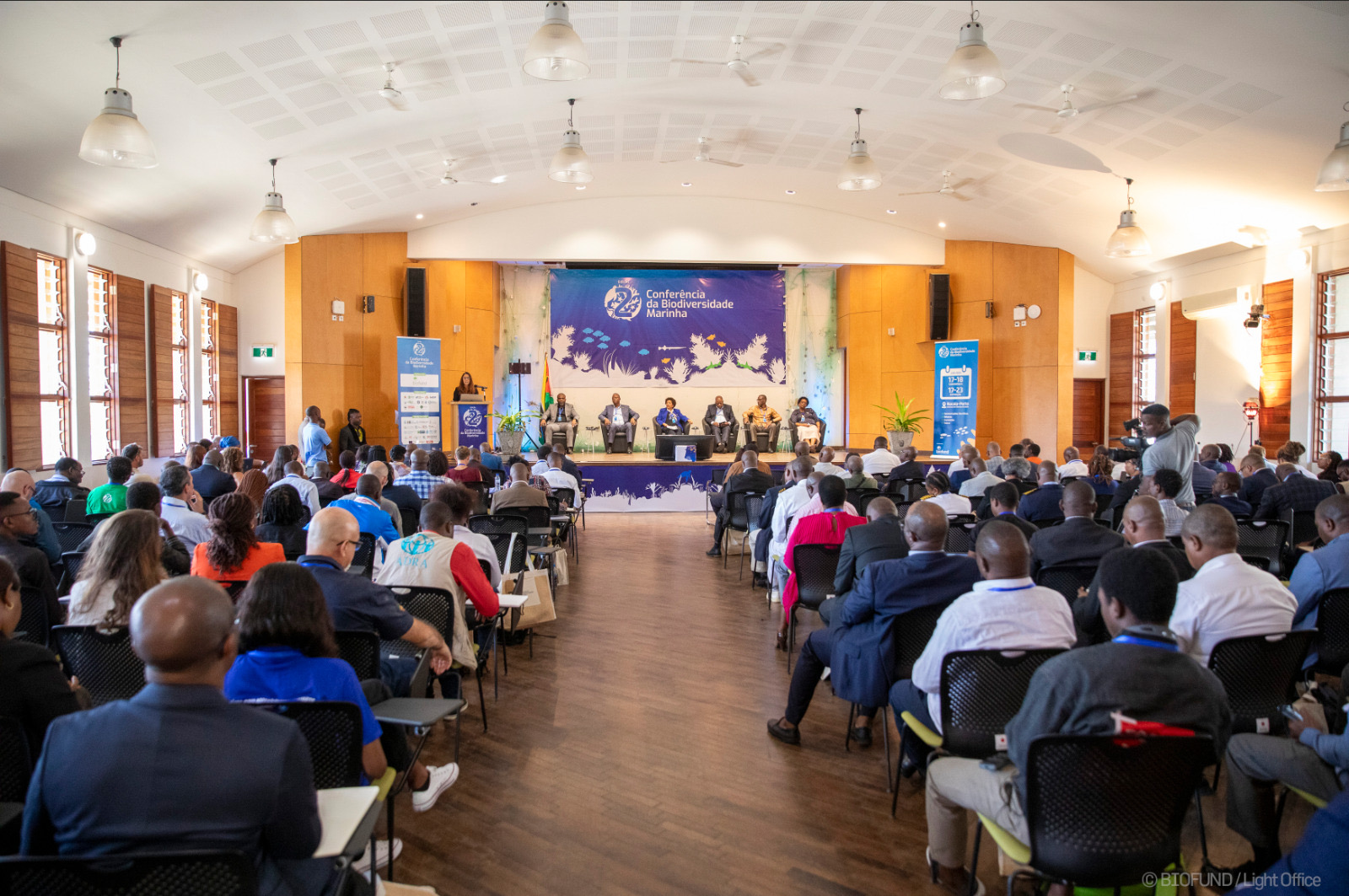The Second Edition of the Marine Biodiversity Conference held on June 17 and 18, 2024, in Nacala-Porto was an outstanding success, gathering a total of 510 in-person participants and more than 6000 online participants over the two days of the event. This event, organized by BIOFUND in collaboration with the Ministry of the Sea, Inland Waters, and Fisheries and various national and international partners, highlighted the importance of conserving Mozambique's marine and coastal ecosystems.
- Ecosystem-Based Adaptation: The need for decentralization, an integrated approach, and the promotion of new sustainable fishing techniques was emphasized. The importance of involving local communities in marine resource management and educating school-age children about environmental preservation were also central themes.
- Marine Conservation Areas: Discussions were held on the challenges in resource use in protected areas, expanding the boundaries of protected areas, and the need for greater funding for marine invertebrate conservation projects, which have been less prioritized compared to larger species.
- Coastal and Marine Biodiversity: The importance of public dissemination of research data and conservation reports was highlighted, ensuring transparency, sharing, and increased awareness of conservation efforts.
The Minister of the Sea, Inland Waters, and Fisheries, Lídia Cardoso, emphasized the need for clear and effective communication to implement conservation measures and the vital role of sustainable fishing techniques. Dr. Narciso Matos, Chairman of BIOFUND, reaffirmed BIOFUND's commitment to resource mobilization and biodiversity conservation management. Alexandra Jorge, BIOFUND's Program Director, stressed the importance of integrating research themes into these debate events, whose results form the basis for management and strategic decision-making and involving children in conservation initiatives.
Government entities and partners of the Future Blue Project
The event provided a valuable platform for knowledge exchange, presentation of innovative research, and strengthening collaboration networks among participants. This event was made possible through the generous support and engagement of numerous partners and sponsors. Among the organizers were the Ministry of the Sea, Inland Waters, and Fisheries (MIMAIP), the Oceanographic Institute of Mozambique (InOM), Museus do Mar, Museu da História Natural, the National Administration of Conservation Areas (ANAC), the Wildlife Conservation Society (WCS), Universidade Eduardo Mondlane, Universidade Lúrio, Fundação Likhulu, the Nacala Institute of Health Sciences, the Cooperativa de Educação Ambiental Repensar, the Mulala Marine Sanctuary, and the Instituto Oikos.
The sponsors include the Blue Action Fund - BAF, the Governo da Suécia, the World Bank through MozBio 2, the United Nations Food and Agriculture Organization (FAO) in partnership with the Southwest Indian Ocean Fisheries Commission (SWIOFC) and the Nairobi Convention, German Cooperation through GIZ, Peace Parks Foundation (PPF), Italian Cooperation, RARE, ADRA, IDEA Global through USAID, the o Blue Planet Fund UK, the Portuguese Embassy, the European Union through the PROMOVE Biodiversidade Program, WIOMSA, BCI, NED BANK, and MOZA.

The Second Edition of the Marine Biodiversity Conference concluded with the announcement of the location for the next edition in 2025, which will be held in the city of Beira, Sofala province. This decision aims to expand the event's reach and continue promoting the conservation of marine and coastal ecosystems in different regions of the country.
This conference was a unique opportunity to unite efforts and discuss effective strategies for protecting Mozambique's marine biodiversity. It is hoped that the recommendations and connections established during the event will inspire concrete and lasting actions, ensuring a more sustainable future for marine and coastal ecosystems and the communities that depend on them. The environmental education exhibition and activities integrated into the event remain open to the public until June 23 at the Nacala-Porto Institute of Health Sciences.
Watch the summary films on YouTube (day 1; day 2; exhibition).